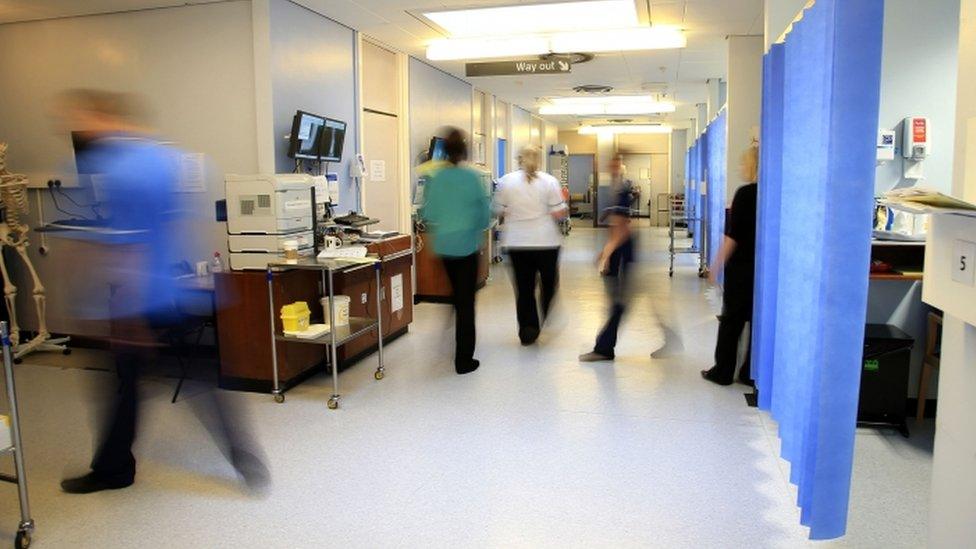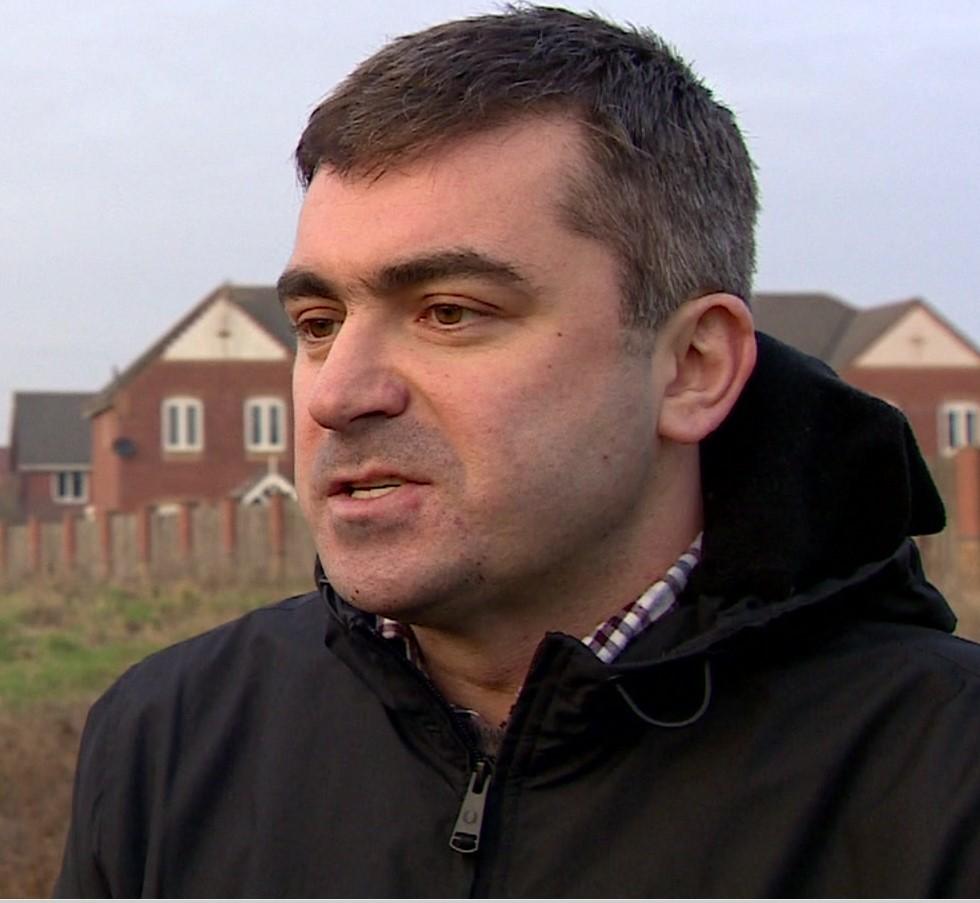Hospitals in Lancashire see rise in mental health patients
- Published

Patients with mental health conditions are facing lengthy waits in A&E
Hundreds of mental health patients in crisis are being stranded in Lancashire A&E departments because there is nowhere else for them to go.
It follows a five-fold increase in such patients turning up at emergency units over the last three years, a BBC investigation has found.
In one case, a patient waited more than five days to receive appropriate care.
Lancashire Care, which provides mental health care in the county, said it is working to resolve the problem.
Freedom of Information requests found that, between April and December last year, 75% of patients waiting more 12 hours at Lancashire A&E departments had mental health conditions.
When a mental health patient ends up at A&E, they need to be assessed by an approved mental health professional before they can be admitted to a psychiatric hospital or given some other help.
But the time taken for this to happen in Lancashire has risen sharply in recent years.

Mental health patients waiting 12 hours+ in Lancashire A&Es
2015-16: 68
2016-17: 139
2018-19: 379 (so far this financial year)
Source: Freedom of Information

'Frightening'
Stuart Clayton, from Bispham in Lancashire, regularly goes to Blackpool Victoria Hospital's A&E with his partner due to a medical condition.
He said: "If you go after 5pm, generally you know you are going to be there until the morning till you're assessed.
"She very rarely leaves the house so, to be put in that environment and then having to wait there with all that activity that goes on in an A&E unit, it's frightening for her."

Stuart Clayton has experienced long waits at Blackpool Victoria A&E
'Urgently'
Dr Damian Riley, Medical Director at East Lancashire Hospitals Trust which runs the Royal Blackburn Hospital, said the situation is putting added pressure on an already pressurised department.
"There's added requirements for staffing because we will usually supply one-to-one member of staff for such patients and, of course, in all the time that they stay in the general emergency department, the cubicle is occupied for that period of time."
But he said there was no danger to patients.
"The hospital is providing extra staff and specialist training to make sure patients are safe during their stay," he added.
Lancashire Care accepted there was a problem.
Paul Lumsdon, Interim Director of Nursing and Quality, said: "We have too many people waiting for too long to access our services so we do recognise that.
"We take this quite urgently and we are trying everything we can within our resources...We know our community teams are good but we need to enhance them and we need to make sure we are fully utilising the third sector."
- Published11 January 2019

- Published4 December 2018

- Published6 December 2018
